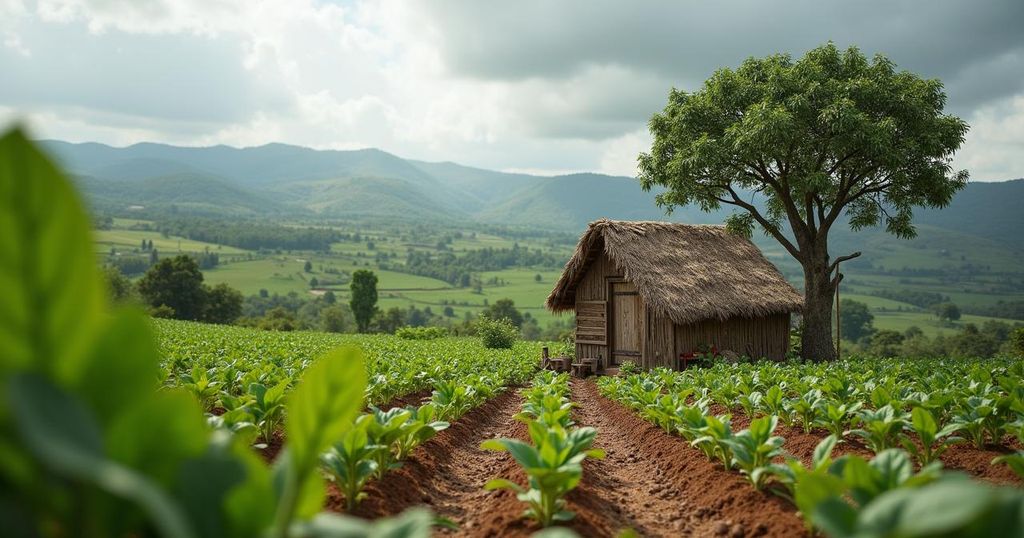The African Development Bank has approved $34.8 million in grants for Malawi and Zimbabwe to boost climate resilience and risk management. The funding will enhance institutional capacities to manage climate disaster risks, promote index-based crop insurance, and provide financial protection to vulnerable communities against climate-related losses. This initiative is part of the Bank’s broader strategy to address climate challenges in Southern Africa and support economic diversification in agriculture.
The African Development Bank Group has recently approved a total of $34.8 million in grants aimed at enhancing climate resilience and adaptation strategies for vulnerable communities in Malawi and Zimbabwe. This funding is part of the Bank’s Africa Disaster Risk Financing initiative and is designated for the Mitigating Fragility through the Africa Disaster Risk Financing Programme in Southern Africa Project. The primary objective of this initiative is to strengthen institutional capacities for managing climate risks, thereby enhancing preparedness against disasters. Furthermore, it aims to provide financial protection against climate disaster risks through mechanisms such as sovereign climate disaster risk transfer and the promotion of index-based crop insurance. This will help mitigate losses due to drought and other agricultural production risks, particularly at the micro-level. Malawi and Zimbabwe currently face significant challenges in effective climate risk management, as both nations are vulnerable to severe climate events like droughts, tropical cyclones, and floods. To effectively respond to these challenges, the project aims to improve disaster risk management systems, enhance early warning capabilities, and strengthen institutional frameworks to support resilient practices. Through the proposed insurance mechanisms, timely financial support will help protect households and small businesses from the adverse effects of climate-related disasters, reducing their risk of falling into poverty or bankruptcy. Furthermore, it is anticipated that the availability of climate risk insurance will encourage behavior changes among beneficiaries, leading to increased investments in climate-resilient practices and savings for insurance premiums. This project builds upon previous successes of the ADRiFi program. Notably, during the 2024-25 drought season, the African Risk Capacity disbursed over $45 million in aid to affected farmers, signifying the critical support provided for food assistance and recovery efforts during periods of adversity. The project aligns with the African Development Bank’s strategic priorities, particularly in enhancing food security and improving the quality of life of residents in Africa. Additionally, it supports the Bank’s long-term strategy focusing on economic diversification through investments in agriculture and related infrastructure.
The African Development Bank (AfDB) plays a crucial role in reinforcing resilience against climate-related disasters in African nations. With increasing climate fragility, especially in Southern Africa, there is an urgent need to bolster institutional frameworks and financial mechanisms that support affected communities. The region is particularly susceptible to the impacts of climate change, facing challenges such as prolonged droughts, intense flooding, and other extreme weather events. Given these threats, the AfDB’s initiatives aim to enhance climate preparedness, protect vulnerable populations, and promote sustainable livelihoods through strategic intervention and financial support.
In conclusion, the African Development Bank’s recent grant approval for $34.8 million to Malawi and Zimbabwe underscores a significant commitment to enhancing climate resilience in regions severely affected by climate change. By focusing on institutional capacity building, financial protection measures, and improved disaster risk management, this initiative aims to safeguard vulnerable communities from climate-related adversities and foster a more resilient agricultural sector. The ongoing partnership with organizations like African Risk Capacity further reinforces these efforts and highlights the necessity of collaborative approaches to tackle climate vulnerabilities. Overall, this project represents a critical step in achieving the broader goals set forth by the African Development Bank, particularly in promoting food security and improving living conditions across the continent.
Original Source: www.reinsurancene.ws






